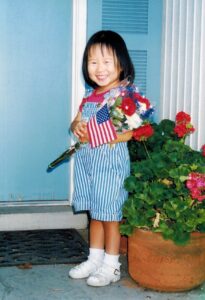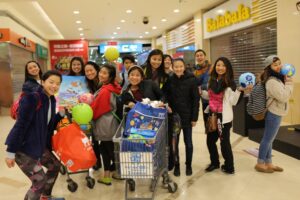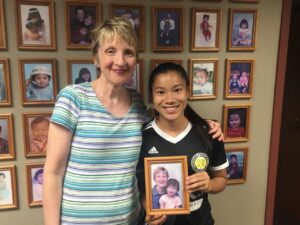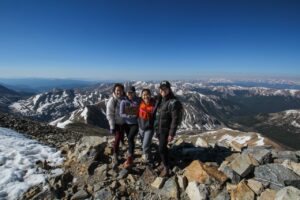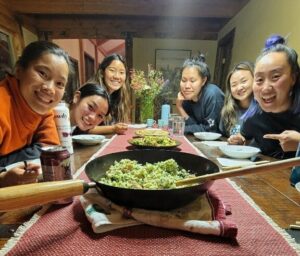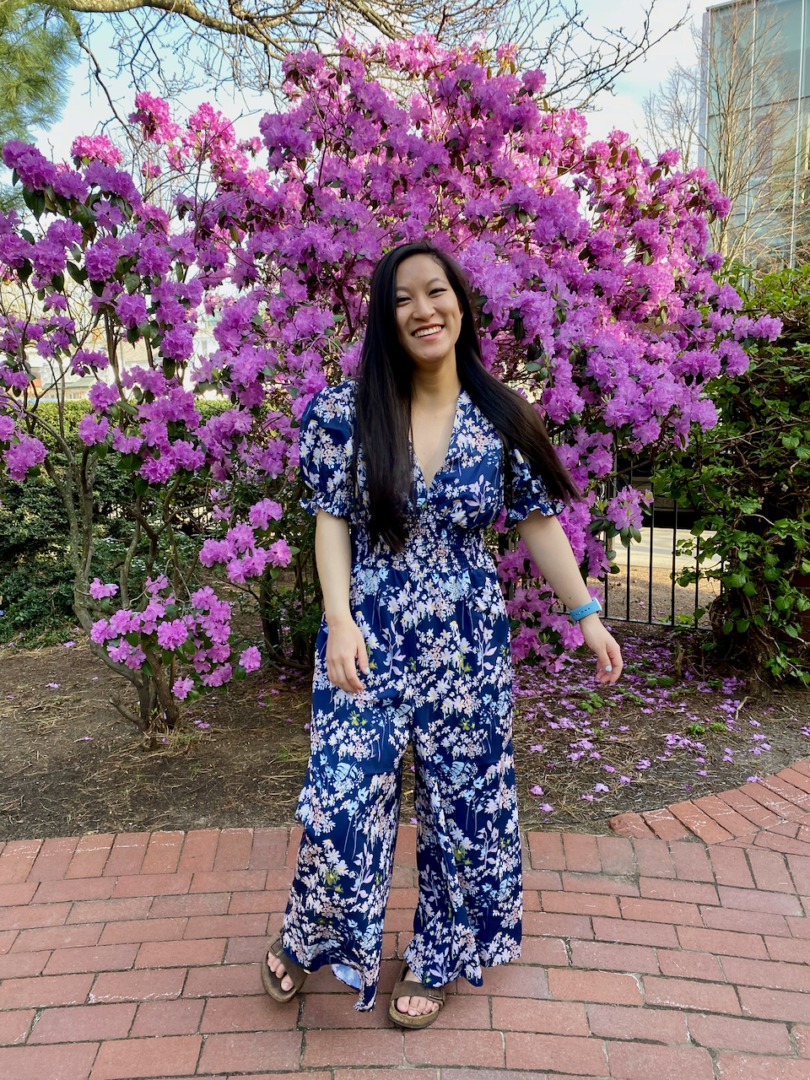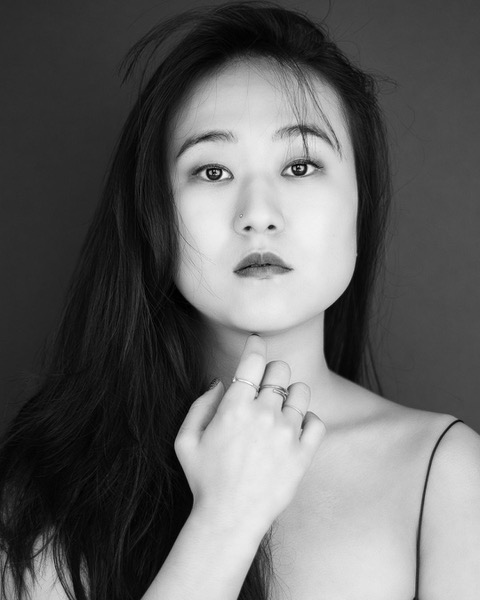
For tourists in China, using the Alipay app or using cash are going to be the easiest way to pay for things. 98% of vendors and patrons will use Alipay (mobile wallet), but we understand that some travelers are not comfortable with mobile apps.
Please refer to our Travel Resources page for more info on payment methods
Plan on bringing $400-$500USD/person with you to cover meals and personal spending for a 12-day trip. Always welcome to bring more than this, but $400 is a good minimum.
If you’re looking for a good book to help you logistically prepare for your trip to China, we really enjoyed this one!
Temperatures to pack for:
Summers in China are hot and humid, so consider packing light (think quick-dry, breathable items). China’s summer temperatures typically fall in the mid-70s to upper-90s. With humidity, this feels more like a constant sauna and AC is only used in commercial facilities in China.
Clothing: Keep in mind that you will need to be staying in a hotel for at least three days if you need professional laundry services. In most cases, you will likely be washing your clothes by hand in your hotel and air-drying them, if needed. With China’s humidity, things take longer to dry than some or accustomed to.
- Quick-dry, sweat-wicking apparel
- 1-2 nicer outfits in case of special occasions
- T-shirts and tanks are acceptable
- Shorts and capris
- Socks (search for anti-blister, sweat-wicking socks)
- Underwear
- Light, hooded jacket in case of rain
- 1-2 pairs comfortable walking shoes & 1 pair of comfortable sandals/flip-flops
- Swimsuit & swim cap (most of China’s pools require that you wear a swim cap)
- Baseball cap/sun hat/bucket hat
- Sunglasses
Our Essentials:
- Passport (+ additional photocopies of the photo page of your passport in case you lose your passport)
- Money pouch/belt
- ATM card
- Travel insurance card
- Toiletries
- Toothbrush, toothpaste, floss
- Glasses/contact lenses & contact solution
- Face wipes
- Deodorant
- Lotion, sunscreen
- Shampoo & conditioner
- *Note for us women* Feminine products are slightly different in China. Pads tend to be thicker, with no wings, and tampons are difficult to find, as are menstrual cups. Plan accordingly if you are particular about the products you use.
- Body powder (for sweat-wicking, anti-chaffing purposes… Trust us.)
- These super handy soap sheets (China’s public restrooms rarely have soap)
- These super handy laundry detergent sheets (lightweight with no risk of bursting in your luggage)
- Camera and charger(s) (150-240V capacity)
- Cellphone and charger (150-240V capacity)
- Headphones
- Should bring a backup wired pair as well. Many China airlines do not allow bluetooth headphones.
- Outlet adapter (although most everywhere will likely have Type A outlets) & power converter
- Portable battery charger (Needs to have voltage label for TSA approval, must be below 100Wh)
- First Aid kit
- Any personal medication (for asthma, diabetes, heartburn, anxiety, etc.)
- Variety of over-the-counter meds: Benadryl, Tums, DayQuil, NyQuil, throat lozenges, Advil, Tylenol, Excedrin, Sudafed, Mucinex, Pepto Bismol, Immodium
- Antibiotics for infections and traveler’s diarrhea
- Kleenex (6 travel packets) (Many public restrooms do not provide toilet paper)
- Alternatively, you can pack camping toilet paper rolls
- Mosquito repellant (Those pesky mosquitos really love our Asian blood… This will be your best friend)
- Also anti-itch/anti-histamine cream (Benadryl, Allegra, etc.) for mosquito bites
- Antibacterial hand sanitizer/wipes
- Face masks
- Zip-lock bags (these are just always useful)
- Water bottle
- Snack foods in case you aren’t able to find enough food you like (Bring as much as you need, but don’t go overboard. Small snack bars, nuts, etc.)
Bonus Items:
- Pocket fan (So nice to have. You can also buy this in China, if needed.)
- Cooling scarf (like this one)
- Tracking tags for luggage, wallets, bags, etc.
- Card games/travel board games
- Travel utensils
- Travel blanket for international flight (why are they always so cold?)
- Face wipes because airplanes are so dry
- Small quick-dry travel towel (like this one) for sweat and spills
Temperatures to pack for:
Winters in China are cold and snowy up north and wet and chilly down south. In northern China, temperatures typically fall in the mid-20s to upper-40s. Further south, temperatures are closer to low-40s to mid-60s. If you make it down to Guangdong or Hong Kong, you may even catch some balmy 70s!
Clothing: Keep in mind that you will need to be staying in a hotel for at least three days if you need professional laundry services. In most cases, you will likely be washing your clothes by hand in your hotel and air-drying them, if needed. With China’s humidity, things take longer to dry than some or accustomed to.
- Quick-dry, sweat-wicking apparel
- 1-2 nicer outfits in case of special occasions
- 2-3 long-sleeve shirts that you can layer if needed
- 1-2 sweaters/sweatshirts/hoodies
- 1-2 comfortable pants that make walking many miles painless
- Thermals for extra cold days
- Wool socks
- Underwear
- Warm winter coat
- 1 pair of comfortable walking shoes & 1 pair of boots
- Beanie or earmuffs
- Scarf
- Gloves/mittens
- Sunglasses
Our Essentials:
- Passport (+ additional photocopies of the photo page of your passport in case you lose your passport)
- Money pouch/belt
- ATM card
- Travel insurance card
- Toiletries
- Toothbrush, toothpaste, floss
- Glasses/contact lenses & contact solution
- Face wipes
- Deodorant
- Lotion
- Chapstick
- Shampoo & conditioner
- *Note for us women* Feminine products are slightly different in China. Pads tend to be thicker, with no wings, and tampons are difficult to find, as are menstrual cups. Plan accordingly if you are particular about the products you use.
- Body powder (for sweat-wicking, anti-chaffing purposes… Trust us.)
- These super handy soap sheets (China’s public restrooms rarely have soap)
- These super handy laundry detergent sheets (lightweight with no risk of bursting in your luggage)
- Camera and charger(s) (150-240V capacity)
- Cellphone and charger (150-240V capacity)
- Headphones
- Should bring a backup wired pair as well. Many China airlines do not allow bluetooth headphones.
- Outlet adapter (although most everywhere will likely have Type A outlets) & power converter
- Portable battery charger (Needs to have voltage label for TSA approval, must be below 100Wh)
- First Aid kit
- Any personal medication (for asthma, diabetes, heartburn, anxiety, etc.)
- Variety of over-the-counter meds: Benadryl, Tums, DayQuil, NyQuil, throat lozenges, Advil, Tylenol, Excedrin, Sudafed, Mucinex, Pepto Bismol, Immodium
- Antibiotics for infections and traveler’s diarrhea
- Kleenex (6 travel packets) (Many public restrooms do not provide toilet paper)
- Alternatively, you can pack camping toilet paper rolls
- Antibacterial hand sanitizer/wipes
- Face masks
- Zip-lock bags (these are just always useful)
- Water bottle/thermos
- Snack foods in case you aren’t able to find enough food you like (Bring as much as you need, but don’t go overboard. Small snack bars, nuts, etc.)
Bonus Items:
- Tracking tags for luggage, wallets, bags, etc.
- Card games/travel board games
- Travel utensils
- Travel blanket for international flight (why are they always so cold?)
- Face wipes because airplanes are so dry
- Small quick-dry travel towel (like this one) for spills

